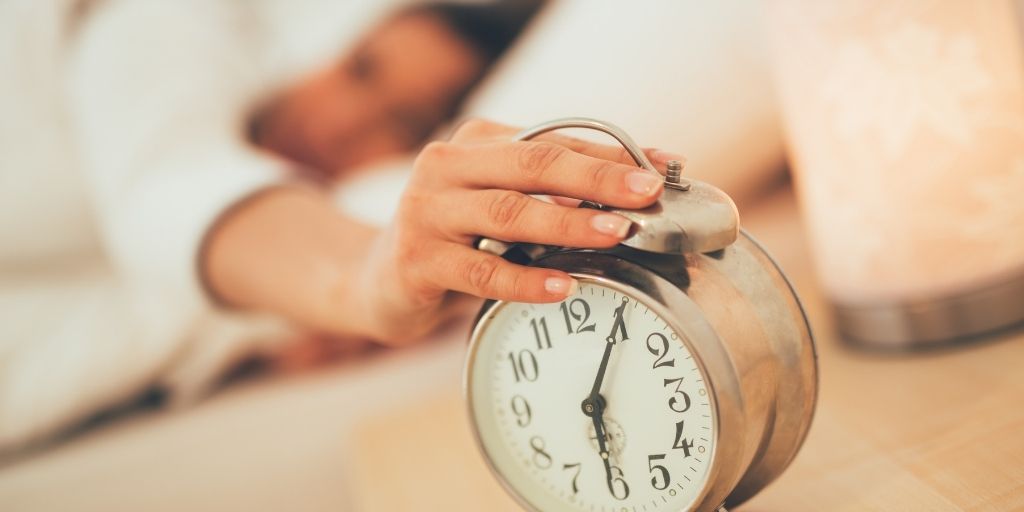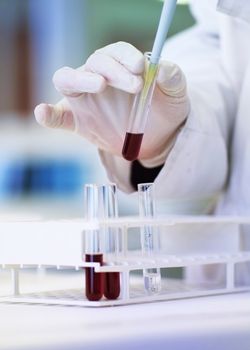Can a Healthy Internal Clock Lead to New Eating Disorder Treatments?
 Sleep. Eat. Work. Eat. Sleep. What’s your cycle look like? Is your internal clock healthy?
Sleep. Eat. Work. Eat. Sleep. What’s your cycle look like? Is your internal clock healthy?
Researchers are looking into new eating disorder treatments based on an important issue: sleep.
On the surface, these two issues may not seem related. But previous research has shown a strong relationship between sleep disruptions and eating disorders.
Let’s start with a quick biology lesson to explain the how and why behind this connection between sleep and eating disorders.
Call 888-647-0051 Toll Free. Privacy Guaranteed. No Commitment.
Addiction help is standing by 24 hours a day, 7 days a week.Catching the Rhythm
 Your circadian rhythm is a 24-hour rhythm that is controlled by your internal “master clock.” This clock (the suprachiasmatic nucleus, or SCN) is located in your brain. It regulates your sleep-wake cycle, body core temperature, and certain hormone releases. The SCN keeps your systems in rhythm with the outside world.
Your circadian rhythm is a 24-hour rhythm that is controlled by your internal “master clock.” This clock (the suprachiasmatic nucleus, or SCN) is located in your brain. It regulates your sleep-wake cycle, body core temperature, and certain hormone releases. The SCN keeps your systems in rhythm with the outside world.
But there are things that can affect this rhythm. Food intake is one of them. Researchers have found that eating is one of the most important cues to this system.
In fact, “misalignment of food intake leads to chronodisruption” (that’s a malfunction of your biological clock, the SCN).
This disruption is associated with obesity and eating disorders.
The Rhythm of Eating Disorders
Studies have repeatedly confirmed a close relationship between sleeping and eating. One research review confirmed there is a high prevalence of circadian disruptions in eating disorders. Other findings confirmed that circadian rhythms are disturbed in patients with eating disorders.
Still other studies have shown that patients with binge eating disorder showed poor sleep quality and shortened sleep. And meta-analyses have suggested that “obesity is associated with sleep disturbances including insomnia symptoms and short sleep duration.”
What’s going on? Researchers have noted that alterations in circadian rhythm may be associated with a disruption in the feeding-fasting cycle. They say it’s possible that sleep deprivation could be associated with changes in feeding hormones, which can lead to greater food consumption and weight gain.
Researchers say it’s possible that sleep deprivation could be associated with changes in feeding hormones, which can lead to greater food consumption and weight gain.
Can This Lead to New Eating Disorder Treatments?
Armed with this information, researchers are turning toward treatment. They’re asking how this knowledge can be used to create new eating disorder treatments.
An estimated 30 million people in the United States have struggled with an eating disorder at some point in their lives. And 10,200 people in the US die each year as the result of an eating disorder. So, we’re in desperate need of effective treatment.
Is the connection between sleeping and eating the key?
Further study is needed. But bright light therapy has been found to reduce bulimic eating behaviors. Researchers are hopeful that these types of “chronotherapeutic interventions” may be effective new eating disorder treatments since they adjust circadian systems that are off-rhythm.
These types of “chronotherapeutic interventions” may be effective new eating disorder treatments since they adjust circadian systems that are off-rhythm.
Researchers at the University of Cincinnati are conducting the most recent of these studies. They are looking at the effect of readjusting the circadian system in people with binge eating behavior.
Binge eating disorder is the most common eating disorder. It affects about 2.8 million people in the U.S.
Francisco Roma-Nava, MD, PhD, UC Health physician, noted that “other recent studies have suggested that the circadian system could be involved with regulating food choices, as well as when and how much people eat. The involvement of the circadian system in disordered eating behavior, however, is less clear.”
“Ultimately,” Roma-Nava explained, “we want to advance our understanding of the role of the circadian system in binge eating disorder, and this study will provide valuable insight on its potential as a new therapeutic target.”
The researchers are excited about the positive impact their findings could have on new eating disorder treatments for patients in the future.
Call 888-647-0051 Toll Free. Privacy Guaranteed. No Commitment.
Addiction help is standing by 24 hours a day, 7 days a week.The Need for More Studies on New Eating Disorder Treatments
 In a recent issue of Alpha Psychiatry, experts call for more focus on this area of research and treatment:
In a recent issue of Alpha Psychiatry, experts call for more focus on this area of research and treatment:
“There is a need to increase the use of circadian rhythm-oriented interventions and treatments…Chronotherapeutic approaches can provide an easy-to-use, inexpensive, tolerable treatment opportunity for people with eating disorder symptoms.
“Mistimed feeding and disordered eating attitudes are associated with metabolic disorders and obesity, which may suggest that chronotherapeutic approaches are a promising area.”
All this to say, sleep—and a healthy internal clock—may be the missing link in new eating disorder treatments.
For information about treatment options for you or a loved one, call 888-647-0051 (Who Answers?) today.
Images Courtesy of Canva.





